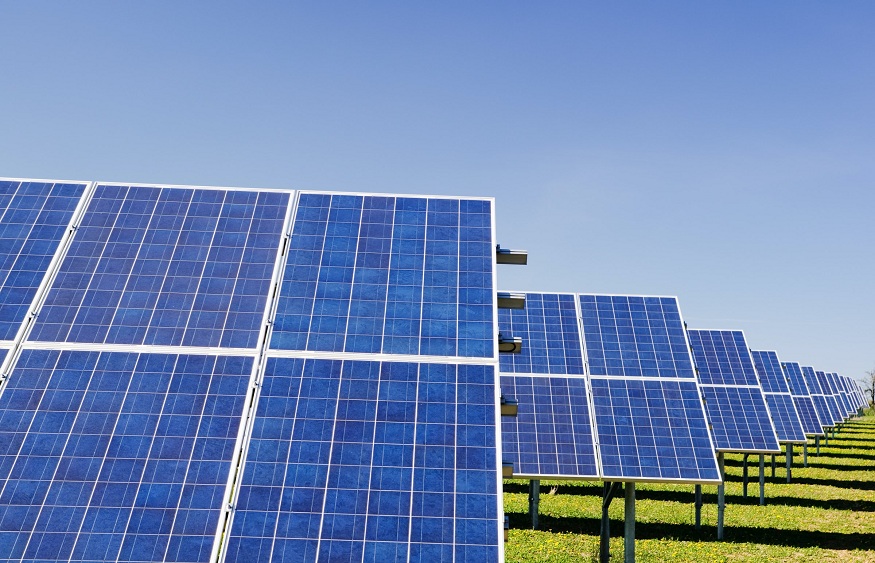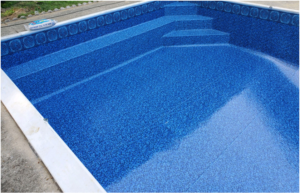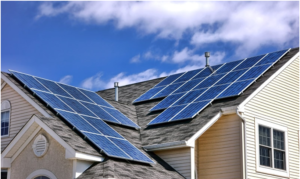All You Need to Know About Solar Panels in Spain

Spain is renowned for its abundant sunshine, making it an ideal country to explore the benefits of solar panels for your home. With the cost of living on the rise and energy bills becoming increasingly expensive, considering solar panel installation can offer a cost-effective and environmentally friendly energy solution.
In this article, we will provide you with all the essential information you need to know about , including their functionality, advantages, and key considerations.
Understanding Solar Panels Solar panels serve as large batteries that are typically mounted on the roof of a home.
By utilizing photovoltaic cells, solar panels absorb sunlight and generate direct current (DC) electricity. This electricity is then converted into alternating current (AC) using inverter technology. The AC power produced by solar panels is then distributed throughout the home via an electrical panel. The number and size of solar panels determine the amount of electricity generated.
Benefits of Solar Panels There are numerous benefits to incorporating solar panels into your property.
Firstly, they offer significant cost savings on energy bills, providing a more affordable alternative to traditional energy sources. Additionally, solar panels are a clean and sustainable energy solution, reducing your carbon footprint and promoting a greener environment.
By reducing reliance on fossil fuels, solar panels help combat climate change and contribute to a more sustainable future. Furthermore, the declining costs associated with solar panel installation have made them increasingly accessible, enabling more homeowners to enjoy the advantages of solar power.
In fact, private properties in Spain witnessed a staggering 102% increase in solar power generation in 2021, indicating a growing trend in embracing solar panel technology.
Types of Solar Panel Installations
When considering solar panel installation for your home, there are two main options to choose from: on-grid and off-grid systems. On-grid solar panels are connected to the utility company’s power grid, allowing excess energy to be sold back to the grid.
This not only reduces your energy costs but also offers the convenience of continuous power supply. On-grid systems are the most popular choice in Spain. However, in rural areas, power outages from the utility company may result in a loss of electricity.
In contrast, off-grid systems are independent of the utility company’s network. Excess energy generated by off-grid systems is stored in batteries, providing a reliable power source during periods of low sunlight or at night. Although off-grid systems offer greater reliability, they generally require a higher initial investment.
Why Choose Solar Panels in Spain?
Spain’s sunny climate makes it an ideal location for solar panel installation. Even during the winter months, there is sufficient sunlight to generate electricity and save on energy bills. In addition to financial benefits, embracing solar panels allows you to make a positive impact on the environment. By reducing reliance on traditional energy sources and embracing renewable energy, you actively contribute to a more sustainable future.
Cost Considerations for Solar Panels in Spain One of the most common questions regarding solar panels in Spain is the cost of installation. The price depends on various factors, including the type of installation (on-grid or off-grid).
For an off-grid system, the lowest-priced installation is typically around 5,000 euros, suitable for smaller homes with two to three bedrooms. Larger homes may require a 7.5KW system with battery storage, costing approximately 7,500 euros (including VAT), suitable for medium-sized properties with three or more bedrooms.
For larger homes, a 10KW system would start from 10,000 euros (inclusive of VAT), equipped with larger storage batteries of around 900AH. If budget is a concern, on-grid installations are generally more affordable, ranging from 4,000 euros for a 2.5KW system to 6,500 euros for a 5KW system.
Maintaining Solar Panels To ensure optimal performance and longevity, regular maintenance of solar panels is essential.
Using a hose or a leaf blower is usually sufficient to remove any debris or dirt. While occasional rain can help keep the panels clean, manual cleaning may be necessary during dry spells.
Solar panels are designed to withstand various weather conditions, including snow, rain, hail, and high temperatures. Their durability allows them to continue generating electricity efficiently, regardless of the unpredictable weather in your region.
Energy Savings with Solar Panels
With energy costs on the rise in Spain and across Europe, installing solar panels can lead to significant savings on your energy bills. The amount you can save depends on factors such as your energy usage, sunlight availability, tariff structure, and installation costs.
an average of approximately 5,843 kilowatt-hours per year. This could result in savings of 1,684 euros annually or 8,420 euros over five years. In most cases, the initial installation cost can be recouped within five years.
Components of Solar Panels Although solar panels may appear as singular blocks, they are composed of various chemical components and materials that play a crucial role in efficiently converting solar light into usable electricity. The main component material used in solar panels is crystalline silicon wafers, which serve as semiconductors.
Approximately 95% of solar panels on the market employ silicon for this purpose, while the remaining 5% utilize experimental technologies such as organic photovoltaic cells. The semiconductors within the solar panels generate electricity by freeing electrons upon interaction with sunlight, a process known as the photovoltaic effect. Other essential components include glass, plastic, metal, and wiring.
The panels are typically covered with a layer of glass and an anti-reflective coating to protect the silicon solar cells while allowing sunlight to pass through. A plastic or polymer frame supports the entire arrangement for installation on rooftops or ground-mounted systems. Solar panels come in various types, including monocrystalline, polycrystalline, and thin-film panels, each offering different levels of efficiency and flexibility.
Powering Your Home with Solar Panels While solar panels can power a house to a certain extent, relying solely on solar power may require additional energy storage. The average household in Spain consumes approximately 2,900 kWh of electricity per year, varying based on factors such as the number of occupants and their energy usage patterns.
Solar power is most abundant during midday when the sun’s light is strongest. However, household energy demand typically peaks in the morning and evening. To address this, energy storage solutions such as batteries can store excess solar energy for use during periods of high demand or low sunlight. This ensures a continuous and reliable power supply.
Grants and Subsidies for Solar Panels in Spain Fortunately, there are grants and subsidies available to help offset the cost of solar panel installation in Spain. The Council of Ministers in Spain approved Royal Decree 477/2021, which enables direct grants to autonomous regions.
These grants incentivize the installation of self-consumption and storage units for both individuals and businesses. This program is scheduled to run until December 2023, making it an opportune time to invest in solar panels for your home.
Installing solar panels in Spain offers numerous benefits, including cost savings, reduced carbon footprint, and a contribution to a more sustainable future. By understanding the types of solar panels, costs, maintenance requirements, and potential energy savings, you can make an informed decision about integrating solar power into your home.
With the availability of grants and subsidies, now is an excellent time to embrace solar panel technology and enjoy the advantages it brings. Take the step toward a greener and more energy-efficient future by harnessing the power of the sun through solar panels in Spain.




